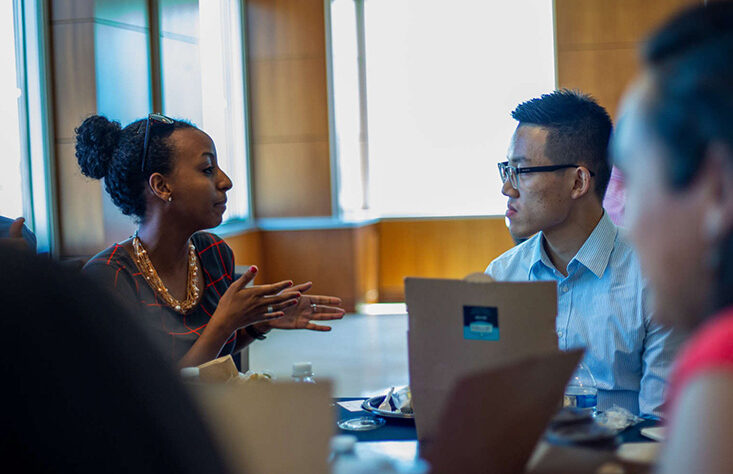What Can You Do With An International Affairs Degree?
Training in international affairs prepares you to solve problems through diplomacy, defense, and development work.
You can help manufacturers, communication firms, consultants, energy companies, and others move products and ideas around the world.
You can build the capacity of students and organizations through international education and cross-cultural training.
You can stop conflicts, fight disease, and slow down environmental degradation.
APSIA graduates find meaningful careers addressing these issues in the public, private, non-profit, and multilateral sectors. The flexible training and interdisciplinary nature of APSIA degrees also enables graduates to change jobs and tackle new areas as they progress in their careers.
Learn more about careers in international affairs.

